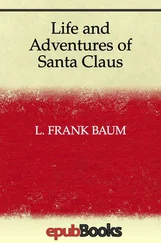Charles Dickens - Life And Adventures Of Martin Chuzzlewit
Здесь есть возможность читать онлайн «Charles Dickens - Life And Adventures Of Martin Chuzzlewit» весь текст электронной книги совершенно бесплатно (целиком полную версию без сокращений). В некоторых случаях можно слушать аудио, скачать через торрент в формате fb2 и присутствует краткое содержание. Жанр: Классическая проза, на английском языке. Описание произведения, (предисловие) а так же отзывы посетителей доступны на портале библиотеки ЛибКат.
- Название:Life And Adventures Of Martin Chuzzlewit
- Автор:
- Жанр:
- Год:неизвестен
- ISBN:нет данных
- Рейтинг книги:5 / 5. Голосов: 1
-
Избранное:Добавить в избранное
- Отзывы:
-
Ваша оценка:
- 100
- 1
- 2
- 3
- 4
- 5
Life And Adventures Of Martin Chuzzlewit: краткое содержание, описание и аннотация
Предлагаем к чтению аннотацию, описание, краткое содержание или предисловие (зависит от того, что написал сам автор книги «Life And Adventures Of Martin Chuzzlewit»). Если вы не нашли необходимую информацию о книге — напишите в комментариях, мы постараемся отыскать её.
Life And Adventures Of Martin Chuzzlewit — читать онлайн бесплатно полную книгу (весь текст) целиком
Ниже представлен текст книги, разбитый по страницам. Система сохранения места последней прочитанной страницы, позволяет с удобством читать онлайн бесплатно книгу «Life And Adventures Of Martin Chuzzlewit», без необходимости каждый раз заново искать на чём Вы остановились. Поставьте закладку, и сможете в любой момент перейти на страницу, на которой закончили чтение.
Интервал:
Закладка:
“Well cap'en!” said the colonel.
“Well colonel,” cried the captain. “You're looking most uncommon bright, sir. I can hardly realise its being you, and that's a fact.”
“A good passage, cap'en?” inquired the colonel, taking him aside,
“Well now! It was a pretty spanking run, sir,” said, or rather sung, the captain, who was a genuine New Englander; “con-siderin” the weather.”
“Yes?” said the colonel.
“Well! It was, sir,” said the captain. “I've just now sent a boy up to your office with the passenger-list, colonel.”
“You haven't got another boy to spare, p'raps, cap'en?” said the colonel, in a tone almost amounting to severity.
“I guess there air a dozen if you want “em, colonel,” said the captain.
“One moderate big “un could convey a dozen champagne, perhaps,” observed the colonel, musing, “to my office. You said a spanking run, I think?”
“Well, so I did,” was the reply.
“It's very nigh, you know,” observed the colonel. “I'm glad it was a spanking run, cap'en. Don't mind about quarts if you're short of “em. The boy can as well bring four-and-twenty pints, and travel twice as once. —A first-rate spanker, cap'en, was it? Yes?”
“A most e—tarnal spanker,” said the skipper.
“I admire at your good fortun, cap'en. You might loan me a corkscrew at the same time, and half-a-dozen glasses if you liked. However bad the elements combine against my country's noble packet-ship, the Screw, sir,” said the colonel, turning to Martin, and drawing a flourish on the surface of the deck with his cane, “her passage either way is almost certain to eventuate a spanker!”
The captain, who had the Sewer below at that moment, lunching expensively in one cabin, while the amiable Stabber was drinking himself into a state of blind madness in another, took a cordial leave of his friend the colonel, and hurried away to dispatch the champagne; well knowing (as it afterwards appeared) that if he failed to conciliate the editor of the Rowdy Journal, that potentate would denounce him and his ship in large capitals before he was a day older; and would probably assault the memory of his mother also, who had not been dead more than twenty years. The colonel being again left alone with Martin, checked him as he was moving away, and offered in consideration of his being an Englishman, to show him the town and to introduce him, if such were his desire, to a genteel boarding-house. But before they entered on these proceedings (he said), he would beseech the honour of his company at the office of the Rowdy Journal, to partake of a bottle of champagne of his own importation.
All this was so extremely kind and hospitable, that Martin, though it was quite early in the morning, readily acquiesced. So, instructing Mark, who was deeply engaged with his friend and her three children, that when he had done assisting them, and had cleared the baggage, he was to wait for further orders at the Rowdy Journal Office, Martin accompanied his new friend on shore.
They made their way as they best could through the melancholy crowd of emigrants upon the wharf, who, grouped about their beds and boxes, with the bare ground below them and the bare sky above, might have fallen from another planet, for anything they knew of the country; and walked for some short distance along a busy street, bounded on one side by the quays and shipping; and on the other by a long row of staring red-brick storehouses and offices, ornamented with more black boards and white letters, and more white boards and black letters, than Martin had ever seen before, in fifty times the space. Presently they turned up a narrow street, and presently into other narrow streets, until at last they stopped before a house whereon was painted in great characters, “ROWDY JOURNAL.”
The colonel, who had walked the whole way with one hand in his breast, his head occasionally wagging from side to side, and his hat thrown back upon his ears, like a man who was oppressed to inconvenience by a sense of his own greatness, led the way up a dark and dirty flight of stairs into a room of similar character, all littered and bestrewn with odds and ends of newspapers and other crumpled fragments, both in proof and manuscript. Behind a mangy old writing-table in this apartment sat a figure with a stump of a pen in its mouth and a great pair of scissors in its right hand, clipping and slicing at a file of Rowdy Journals; and it was such a laughable figure that Martin had some difficulty in preserving his gravity, though conscious of the close observation of Colonel Diver.
The individual who sat clipping and slicing as aforesaid at the Rowdy Journals, was a small young gentleman of very juvenile appearance, and unwholesomely pale in the face; partly, perhaps, from intense thought, but partly, there is no doubt, from the excessive use of tobacco, which he was at that moment chewing vigorously. He wore his shirt-collar turned down over a black ribbon; and his lank hair, a fragile crop, was not only smoothed and parted back from his brow, that none of the Poetry of his aspect might be lost, but had, here and there, been grubbed up by the roots; which accounted for his loftiest developments being somewhat pimply. He had that order of nose on which the envy of mankind has bestowed the appellation “snub,” and it was very much turned up at the end, as with a lofty scorn. Upon the upper lip of this young gentleman were tokens of a sandy down; so very, very smooth and scant, that, though encouraged to the utmost, it looked more like a recent trace of gingerbread than the fair promise of a moustache; and this conjecture, his apparently tender age went far to strengthen. He was intent upon his work. Every time he snapped the great pair of scissors, he made a corresponding motion with his jaws, which gave him a very terrible appearance.
Martin was not long in determining within himself that this must be Colonel Diver's son; the hope of the family, and future mainspring of the Rowdy Journal. Indeed he had begun to say that he presumed this was the colonel's little boy, and that it was very pleasant to see him playing at Editor in all the guilelessness of childhood, when the colonel proudly interposed and said:
“My War Correspondent, sir—Mr Jefferson Brick!”
Martin could not help starting at this unexpected announcement, and the consciousness of the irretrievable mistake he had nearly made.
Mr Brick seemed pleased with the sensation he produced upon the stranger, and shook hands with him, with an air of patronage designed to reassure him, and to let him blow that there was no occasion to be frightened, for he (Brick) wouldn't hurt him.
“You have heard of Jefferson Brick, I see, sir,” quoth the colonel, with a smile. “ England has heard of Jefferson Brick. Europe has heard of Jefferson Brick. Let me see. When did you leave England, sir?”
“Five weeks ago,” said Martin.
“Five weeks ago,” repeated the colonel, thoughtfully; as he took his seat upon the table, and swung his legs. “Now let me ask you, sir which of Mr Brick's articles had become at that time the most obnoxious to the British Parliament and the Court of Saint James's?”
“Upon my word,” said Martin, “I—”
“I have reason to know, sir,” interrupted the colonel, “that the aristocratic circles of your country quail before the name of Jefferson Brick. I should like to be informed, sir, from your lips, which of his sentiments has struck the deadliest blow—”
“At the hundred heads of the Hydra of Corruption now grovelling in the dust beneath the lance of Reason, and spouting up to the universal arch above us, its sanguinary gore,” said Mr Brick, putting on a little blue cloth cap with a glazed front, and quoting his last article.
“The libation of freedom, Brick'—hinted the colonel.
Читать дальшеИнтервал:
Закладка:
Похожие книги на «Life And Adventures Of Martin Chuzzlewit»
Представляем Вашему вниманию похожие книги на «Life And Adventures Of Martin Chuzzlewit» списком для выбора. Мы отобрали схожую по названию и смыслу литературу в надежде предоставить читателям больше вариантов отыскать новые, интересные, ещё непрочитанные произведения.
Обсуждение, отзывы о книге «Life And Adventures Of Martin Chuzzlewit» и просто собственные мнения читателей. Оставьте ваши комментарии, напишите, что Вы думаете о произведении, его смысле или главных героях. Укажите что конкретно понравилось, а что нет, и почему Вы так считаете.









